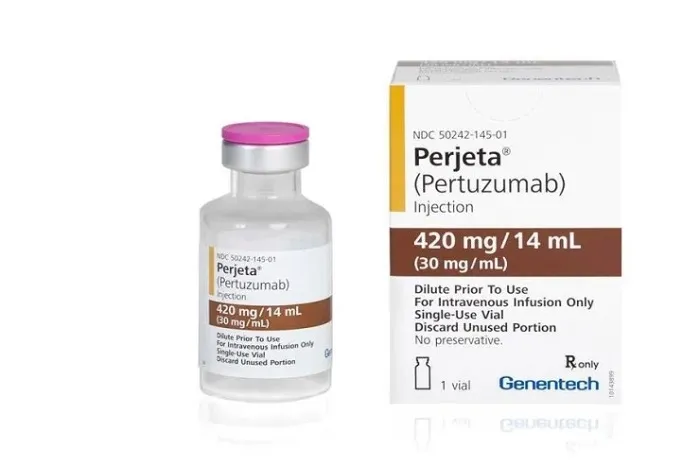Roche has further cemented the efficacy of its Herceptin and Perjeta combination therapy in the treatment of early-stage HER2-positive breast cancer with the release of 10-year survival data from its Phase 3 APHINITY study. The study, which included 4,804 patients, highlights the long-term benefits of the therapy, confirming its status as a standard of care for patients in this category.
The 10-Year Survival Data: Strong and Significant Results
The APHINITY study demonstrated that the addition of Perjeta (pertuzumab) to Herceptin (trastuzumab) and chemotherapy reduced the risk of death by 17% compared to the standard regimen of Herceptin, chemotherapy, and placebo. After 10 years, 91.6% of patients treated with the combination of Herceptin, Perjeta, and chemotherapy were still alive, compared to 89.8% of patients in the control group, showing a statistically significant improvement in overall survival.
Endorsement from Roche’s Leadership
Dr. Levi Garraway, Chief Medical Officer and Head of Global Product Development at Roche’s Genentech unit, expressed confidence in these results, stating that the data “confirm the continued benefit of a Perjeta-based regimen” for early-stage HER2-positive patients. He emphasized that these long-term results reinforce the value of the combination therapy as a “well-established standard of care in curative settings.”
Furthermore, Sibylle Loibl, President and CEO of the German Breast Study Group, pointed out that the 21% reduction in the risk of death for patients with node-positive breast cancer underscores the importance of adding Perjeta to standard postoperative therapy. Perjeta has shown to be particularly beneficial in patients with a high risk of recurrence.
Impact on Clinical Practice and Future Presentations
These results are expected to further influence clinical practice, particularly for patients with HER2-positive and node-positive breast cancer, who are at a higher risk of recurrence. Full study results will be presented at the upcoming 2025 European Society for Medical Oncology (ESMO) Breast Cancer Congress, where further insights into the data will be shared.
Roche’s previous study release in 2019 had already provided early evidence of Perjeta’s benefits. The earlier data showed that adding Perjeta to Herceptin and chemotherapy reduced the risk of death and recurrence by 24% after six years. These new 10-year results build on that foundation, offering even more compelling evidence of the therapy’s long-term efficacy.
Perjeta’s Regulatory Journey and Competition
Perjeta was first approved by the FDA in 2012 for metastatic cancer, showing that it could significantly extend the time patients lived without disease progression. Its approval was later expanded to include use before surgery, and then as post-surgery adjuvant therapy for higher-risk HER2-positive breast cancer patients.
While Herceptin has seen increased competition from generic versions, Perjeta remains largely unchallenged in the market, though the situation may change soon. Shanghai Henlius Biotech Co.’s biosimilar of Perjeta was approved by the FDA in February, marking the first step toward competition in the biosimilar market for the drug.
Financial Impact and Future Outlook for Roche
Roche’s Herceptin and Perjeta combination remains a stable and highly profitable segment for the company. In 2024, Perjeta is expected to generate around $4.3 billion in sales, while Herceptin will contribute approximately $1.6 billion. Evaluate analysts predict that Roche is on track to become the largest pharmaceutical company by sales in 2025, partly due to the success of these two blockbuster drugs.
A Decade of Clinical Excellence
Roche’s 10-year survival data for the Herceptin and Perjeta combination therapy is a significant milestone in the treatment of HER2-positive breast cancer. The long-term survival benefits highlighted in the APHINITY study not only confirm the therapeutic value of the combination but also solidify its position as a foundational part of treatment regimens for patients at high risk of recurrence. This latest evidence adds to Roche’s leadership in oncology and continues to provide hope for patients worldwide dealing with aggressive forms of breast cancer.
Related topics:
- Gabriella Dabrowski Reveals Breast Cancer Surgery After ‘Surreal’ Year
- The 6 Longest-Lasting Breast Implants
- Swansea Mother’S ‘Crazy’ Idea Leads To World-First Cancer Surgery


